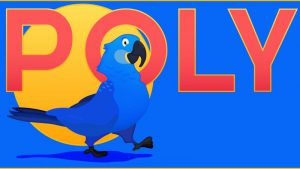
Poly began after a successful Kickstarter campaign last year as an open source, modern software built to share and learn languages in text and video. The project was created by Wikitongues founders and directors Daniel Bogre Udell and Frederico Andrade, who aimed to document and teach every language in the world. Wikitongues began in 2012 when Daniel Bogre Udell began recording oral histories with friends and colleagues in New York City with the simple prompt: tell me about yourself, or your home, in your native language.
Udell, who was raised in a monolingual English household, was interested in languages by living in a minority language community in Spain. He was later joined by Frederico Andrade, who was raised in a bilingual English-Portuguese household and studied Japanese and French growing up. Eventually, Wikitongues blossomed into a nonprofit, and continued to collect recordings from communities throughout the US. Their Youtube channel displays over 347 videos of languages from every human-inhabited region of the world.
Here is an example of one of their videos, in which a person named Giacomo is recorded speaking Romagnol in La Paloma, Uruguay. Romagnol is spoken by more than a million people, primarily in Italy’s Emilia-Romagna region, as well as the Mediterranean nation of San Marino, and by diaspora communities worldwide.
While documentation is an important aspect of revitalization of a language, Udell and Andrade were struck by the work of Marie Wilcox. Wilcox is the last fluent speaker of Wukchumni, one of the many endangered indigenous languages of present-day California. Wilcox has worked to document her language by jotting words in notebooks to create something of a dictionary and phrasebook. Through outreach to other indigenous cultures, the leaders of Wikitongues realized that many indigenous-language speakers have neither the time nor the means to create a dictionary like that of Wilcox.
Wikitongues envisioned a solution that would be user-friendly and open source, which people could use to document their languages and pass them on to new users. Hence, Poly was born. Poly is oriented toward the creation of ‘books’ which comprise vocabulary, phrases, and expressions between an arbitrary language pair. This means that if one is seeking a Lakota-Korean phrasebook, a few clicks on Poly could make that happen.
The nonprofit seeks to include every language, and they mean every language, from those that are not spoken aloud, to sign languages, to constructed languages. While language translation efforts are already in full swing with companies like Google, most often languages with fewer than 10,000 speakers are not of interest. With Poly, Wikitongues seeks to create a global community focused on languages despite the number of speakers. “As a language documentation effort, we are the only one that’s trying to work with every language in the world,” Bogre Udell notes. “Nobody else has that interest. We want to create tools that are that are useful to the public. We want to be more useful to the speakers of the language than the linguists, because the speakers are the ones who need it.”
References:






